-
 Bitcoin
Bitcoin $112200
-0.88% -
 Ethereum
Ethereum $4329
-0.97% -
 XRP
XRP $2.969
-1.76% -
 Tether USDt
Tether USDt $0.0000
0.00% -
 BNB
BNB $884.9
0.16% -
 Solana
Solana $221.0
0.69% -
 USDC
USDC $0.9997
0.00% -
 Dogecoin
Dogecoin $0.2418
0.32% -
 TRON
TRON $0.3368
0.56% -
 Cardano
Cardano $0.8813
-1.09% -
 Hyperliquid
Hyperliquid $55.27
1.41% -
 Chainlink
Chainlink $23.64
-0.35% -
 Ethena USDe
Ethena USDe $1.001
0.01% -
 Sui
Sui $3.539
-1.75% -
 Stellar
Stellar $0.3774
-2.26% -
 Bitcoin Cash
Bitcoin Cash $580.5
-0.77% -
 Avalanche
Avalanche $27.05
3.68% -
 Hedera
Hedera $0.2329
0.15% -
 UNUS SED LEO
UNUS SED LEO $9.552
0.03% -
 Litecoin
Litecoin $113.2
-0.92% -
 Cronos
Cronos $0.2558
2.32% -
 Toncoin
Toncoin $3.115
-0.63% -
 Shiba Inu
Shiba Inu $0.00001296
-0.84% -
 Polkadot
Polkadot $4.113
-0.89% -
 Uniswap
Uniswap $9.680
-0.80% -
 Ethena
Ethena $0.8148
-4.08% -
 Dai
Dai $0.9999
0.02% -
 World Liberty Financial
World Liberty Financial $0.2033
-7.09% -
 Monero
Monero $268.1
-1.33% -
 Aave
Aave $298.2
-3.57%
What should I do if the RSI enters the overbought zone but the price continues to rise?
An overbought RSI in a strong uptrend often signals momentum, not reversal—confirm with price action, volume, and trend structure before acting.
Sep 10, 2025 at 04:36 am

Understanding the Overbought RSI in a Rising Market
1. The Relative Strength Index (RSI) is a momentum oscillator that measures the speed and change of price movements, typically ranging from 0 to 100. When RSI exceeds 70, it is traditionally considered overbought, suggesting a potential reversal or pullback. However, in strong bullish markets, prices can continue rising even as RSI remains above 70 for extended periods.
2. In trending markets, especially during parabolic rallies, overbought conditions may persist because sustained buying pressure drives prices higher despite elevated momentum readings. This behavior is common in cryptocurrency markets, where sentiment and macro factors often override technical signals.
3. Traders relying solely on RSI thresholds risk exiting profitable positions prematurely. Instead, they should assess the broader market structure, volume trends, and trend strength before interpreting overbought signals as bearish warnings.
4. An overbought RSI does not automatically signal a reversal; it indicates strength, not exhaustion, in many uptrends. Confirmation from price action—such as rejection at resistance, bearish candlestick patterns, or divergence—is essential before taking counter-trend actions.
How to Respond When Price Defies Overbought Signals
1. Monitor for bullish continuation patterns such as flags, cup-and-handle formations, or higher highs and higher lows. These structures validate ongoing demand and support the idea that the uptrend remains intact despite high RSI values.
2. Use moving averages—particularly the 20-day and 50-day exponential moving averages (EMAs)—to determine trend direction. As long as price stays above these levels and EMAs slope upward, the bias should remain bullish regardless of RSI readings.
3. Watch trading volume closely. Expanding volume on up days reinforces conviction behind the rally and diminishes the reliability of an isolated overbought RSI warning.
4. Consider using RSI smoothing techniques, like applying a moving average to the RSI line itself, to filter out noise and identify more meaningful shifts in momentum rather than reacting to short-term spikes.
5. Avoid shorting based purely on overbought RSI; instead, focus on trend-following strategies until clear signs of weakness emerge.
Integrating Divergence Analysis with RSI Readings
1. Regular bearish divergence occurs when price makes new highs while RSI fails to surpass its prior peak, indicating weakening momentum. This setup carries more weight than a simple overbought reading and warrants closer attention.
2. Hidden bullish divergence, where price records a higher low while RSI shows a lower low, often appears within uptrends and supports continuation. Recognizing these patterns helps distinguish between healthy pullbacks and actual reversals.
3. Not all divergences lead to reversals. In strong bull runs, multiple false divergences can occur before a genuine shift in trend. Combine divergence signals with key support/resistance breaks or volatility contractions for higher-confidence setups.
4. Apply RSI to higher timeframes (e.g., daily or weekly charts) to assess structural momentum. A daily RSI above 70 with no divergence suggests robust underlying demand, reducing the significance of overbought conditions on lower intervals.
5. Divergence combined with price rejection at key resistance offers a stronger sell signal than overbought RSI alone.
Frequently Asked Questions
Can RSI stay overbought indefinitely in a crypto bull run?Yes, especially during periods of intense speculation or halving-driven rallies. Bitcoin and major altcoins have demonstrated prolonged RSI readings above 80 without immediate corrections due to overwhelming demand and limited supply dynamics.
Should I exit my long position if RSI hits 80?Not necessarily. Exiting based only on RSI level risks missing further gains. Evaluate whether the trend structure is intact, volume supports the move, and no reversal patterns have formed before considering profit-taking.
What other indicators complement RSI in strong trends?The Moving Average Convergence Divergence (MACD), On-Balance Volume (OBV), and Bollinger Bands provide additional context. MACD confirms momentum direction, OBV reflects accumulation/distribution, and Bollinger Band expansion indicates volatility consistent with trending behavior.
Is RSI more reliable on certain timeframes in volatile markets?Higher timeframes like the 4-hour, daily, or weekly reduce noise and improve signal quality. On lower timeframes (e.g., 5-minute or 15-minute), RSI generates frequent overbought/oversold signals that often result in whipsaws during fast-moving crypto moves.
Disclaimer:info@kdj.com
The information provided is not trading advice. kdj.com does not assume any responsibility for any investments made based on the information provided in this article. Cryptocurrencies are highly volatile and it is highly recommended that you invest with caution after thorough research!
If you believe that the content used on this website infringes your copyright, please contact us immediately (info@kdj.com) and we will delete it promptly.
- Ripple, XRP, and Generational Impact: A New Era Dawns
- 2025-09-10 22:45:16
- Bitcoin Mining in 2025: Cloud Mining and the Quest for Free Sites
- 2025-09-10 22:25:15
- PumpFun (PUMP) Price Surge: Buybacks, Solana Memecoins, and Crypto Market Analysis
- 2025-09-10 23:05:13
- Iryna Zarutska, Meme Coin, and Viral Video: A Tragedy's Unexpected Turn
- 2025-09-10 22:45:16
- Turbo Price Prediction, Maxi Doge, Cryptocurrency: What's the Buzz?
- 2025-09-10 22:25:15
- Quranium's Quantum Leap: Token Pre-Sale, Animoca's Backing, and PwC's Insight
- 2025-09-10 22:50:13
Related knowledge
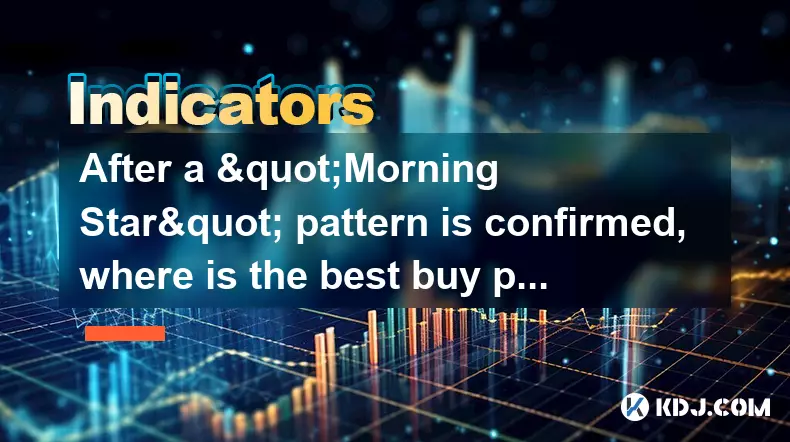
After a "Morning Star" pattern is confirmed, where is the best buy point?
Sep 10,2025 at 06:00pm
Understanding the Morning Star Pattern1. The Morning Star is a bullish reversal candlestick pattern that typically forms at the end of a downtrend. It...
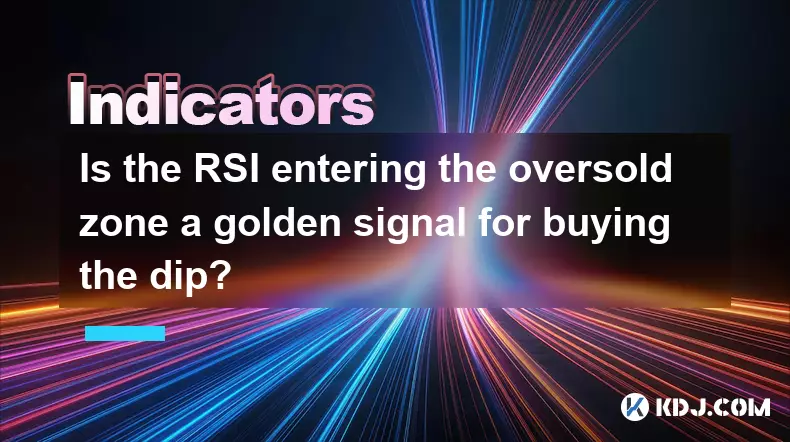
Is the RSI entering the oversold zone a golden signal for buying the dip?
Sep 09,2025 at 02:55pm
Understanding the RSI and Its Role in Crypto Trading1. The Relative Strength Index (RSI) is a momentum oscillator widely used in the cryptocurrency ma...
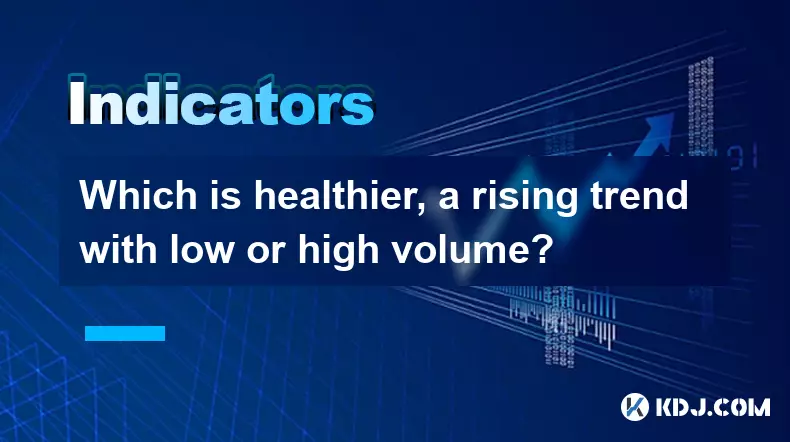
Which is healthier, a rising trend with low or high volume?
Sep 09,2025 at 04:00pm
Understanding Volume in Market Trends1. Volume serves as a critical indicator when analyzing the strength of a rising trend in cryptocurrency markets....
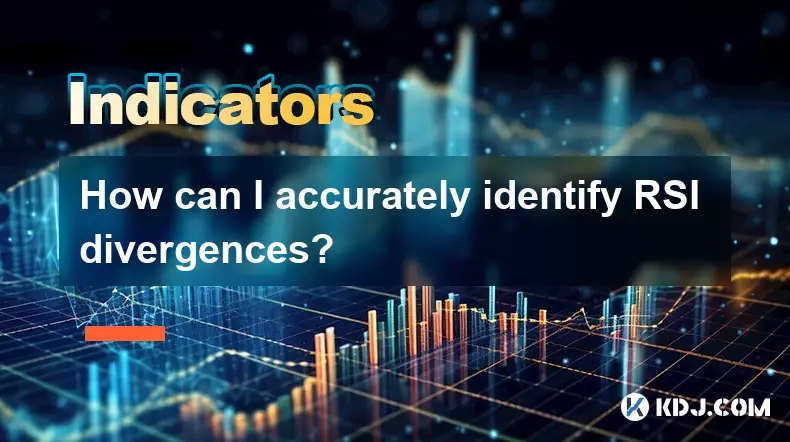
How can I accurately identify RSI divergences?
Sep 10,2025 at 09:54pm
Understanding RSI Divergence Basics1. Relative Strength Index (RSI) is a momentum oscillator that measures the speed and change of price movements on ...
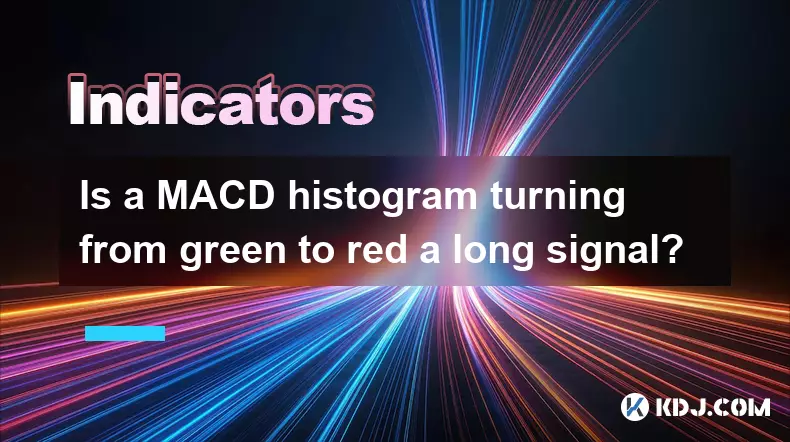
Is a MACD histogram turning from green to red a long signal?
Sep 09,2025 at 01:54pm
Understanding the MACD Histogram in Crypto Trading1. The MACD (Moving Average Convergence Divergence) histogram is a visual representation of the diff...
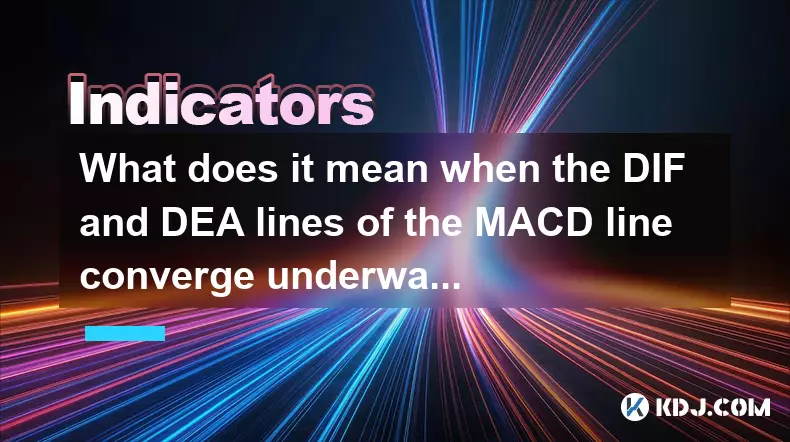
What does it mean when the DIF and DEA lines of the MACD line converge underwater?
Sep 09,2025 at 07:55am
Understanding MACD Components in Bearish Territory1. The MACD indicator consists of three elements: the DIF (Difference), DEA (Signal line), and the M...

After a "Morning Star" pattern is confirmed, where is the best buy point?
Sep 10,2025 at 06:00pm
Understanding the Morning Star Pattern1. The Morning Star is a bullish reversal candlestick pattern that typically forms at the end of a downtrend. It...

Is the RSI entering the oversold zone a golden signal for buying the dip?
Sep 09,2025 at 02:55pm
Understanding the RSI and Its Role in Crypto Trading1. The Relative Strength Index (RSI) is a momentum oscillator widely used in the cryptocurrency ma...

Which is healthier, a rising trend with low or high volume?
Sep 09,2025 at 04:00pm
Understanding Volume in Market Trends1. Volume serves as a critical indicator when analyzing the strength of a rising trend in cryptocurrency markets....

How can I accurately identify RSI divergences?
Sep 10,2025 at 09:54pm
Understanding RSI Divergence Basics1. Relative Strength Index (RSI) is a momentum oscillator that measures the speed and change of price movements on ...

Is a MACD histogram turning from green to red a long signal?
Sep 09,2025 at 01:54pm
Understanding the MACD Histogram in Crypto Trading1. The MACD (Moving Average Convergence Divergence) histogram is a visual representation of the diff...

What does it mean when the DIF and DEA lines of the MACD line converge underwater?
Sep 09,2025 at 07:55am
Understanding MACD Components in Bearish Territory1. The MACD indicator consists of three elements: the DIF (Difference), DEA (Signal line), and the M...
See all articles

























![[XRP/XLM] The [XRP/XLM] The](/uploads/2025/09/10/cryptocurrencies-news/videos/xrpxlm-coin-depicted-simpsons-finally-moving/68c176916bcd0_image_500_375.webp)































































